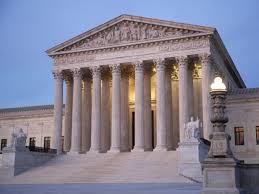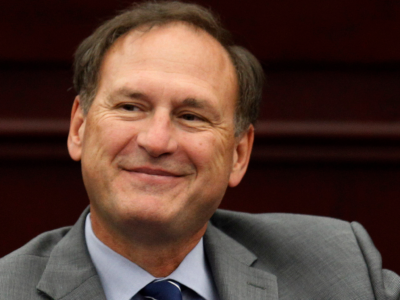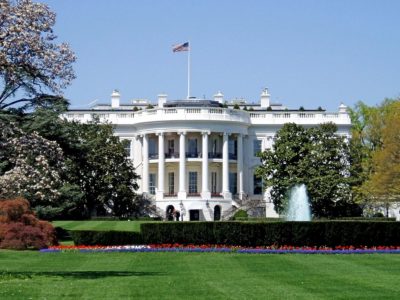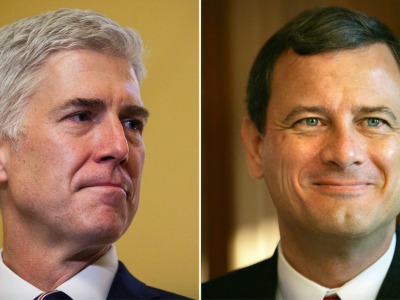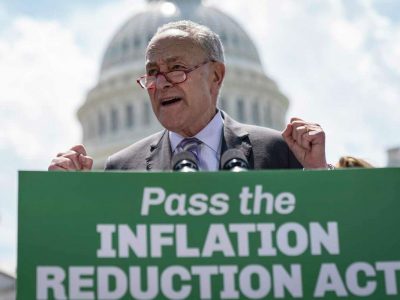major questions doctrine
The New Particulate Standard and the Courts
The tough new air quality standard is sure to be challenged in court. Winning the challenges will be tougher.
EPA has just issued a rule tightening the air quality standard for PM2.5 — the tiny particles most dangerous to health — from an annual average of 12 μg/m³ (micrograms per cubic meter) down to 9 μg/m³. EPA estimates that, by the time the rule goes into effect in 2032, it will avoid 4500 premature …
Continue reading “The New Particulate Standard and the Courts”
CONTINUE READINGWhat’s a Major Question? (Judicial) Opinions differ.
Scholars don’t know the answer. Nor, apparently, do the federal courts of appeals.
In West Virginia v. EPA, the Supreme Court used the “major question doctrine” to overturn Obama’s signature climate change regulation. Once an issue reaches a certain level of significance, the Court says, Congress generally would want to make its own decision rather than allowing an agency like EPA to decide. Scholars have criticized the opinion …
Continue reading “What’s a Major Question? (Judicial) Opinions differ.”
CONTINUE READINGDonald Trump vs. The MQD
Ironically, a conservative legal doctrine might block some of his excesses.
Trump hasn’t been at all secretive about plans for a possible second term. He has plans, big plans. So big, in fact, that they may collide with a conservative judicial rule called the Major Question Doctrine (MQD). Since the Court has mostly used the MQD to block initiatives by Democratic presidents, it would be more …
Continue reading “Donald Trump vs. The MQD”
CONTINUE READINGEPA and the Student Loan Decision
Will the major questions doctrine block EPA’s proposed rules?
Biden v. Nebraska, the student loan case, provided a new opportunity for the Court to apply the major question doctrine. Does this decision increase the threat that EPA’s proposed new regulations will be struck down under this doctrine? A careful reading of the majority opinion is at least somewhat reassuring. The Court painted a picture …
Continue reading “EPA and the Student Loan Decision”
CONTINUE READINGSackett and the Dangers of a New ‘Clear-Statement Rule’
The Supreme Court decision in Sackett v. EPA will be bad for the nation’s wetlands. It is just as bad for democracy.
The Supreme Court decision in Sackett v. EPA limits the Environmental Protection Agency’s ability to defend a large portion of the nation’s wetlands and waterways from pollution. The decision strips key environmental protections from the Clean Water Act by narrowly defining which bodies of water can be regulated under the Act, making it the most …
Continue reading “Sackett and the Dangers of a New ‘Clear-Statement Rule’”
CONTINUE READINGUnprecedented Legal Questions
The climate crisis is unprecedented. So is its legal fallout.
In teaching my class on Climate Law, I’ve been struck by how many new legal questions courts are confronting as a result of the climate crisis. Dealing with these new legal questions is going to put stress on existing legal doctrines and require courts to rethink some basic principles. Unfortunately, the Supreme Court is pushing …
Continue reading “Unprecedented Legal Questions”
CONTINUE READING“Major Questions” for Texas (and for the Environment)
Defending clean car regulations and tracking judicial decision-making
Last June, the Supreme Court formally unveiled the “major questions” doctrine in the landmark environmental case West Virginia v. EPA. In rejecting EPA’s plan to regulate greenhouse gas emissions from existing power plants under Section 111(d) of the Clean Air Act, the Court stated that “agency decisions of vast economic and political significance” (i.e., those …
Continue reading ““Major Questions” for Texas (and for the Environment)”
CONTINUE READINGThe Presidency Under Siege
The current Justices are no friends of presidential power.
As recent scholarship has shown, the Supreme Court has been increasingly aggressive in countering exercises of presidential power. From the environmental perspective, West Virginia v. EPA is the most relevant example of the Court’s efforts to cut the presidency down to size. True, the Court purported to be chastising EPA, part of the bureaucracy. Yet …
Continue reading “The Presidency Under Siege”
CONTINUE READINGWhose Major Questions Doctrine?
There are two versions of the doctrine. One of them is more dangerous.
When it struck down Obama’s signature climate regulation in West Virginia v. EPA, the Supreme Court formally adopted the major questions doctrine as a way to synthesize prior anti-regulatory rulings. The major questions doctrine (MQD to insiders) has gotten a lot of attention. One thing that’s been overlooked, however, is that there are two versions …
Continue reading “Whose Major Questions Doctrine?”
CONTINUE READINGDoes the New Climate Law Expand Regulatory Authority?
It’s not the game changer some people think, but IRA could help in several ways.
There’s been a lot of recent talk about whether the Inflation Reduction Act (IRA) indirectly overrides West Virginia v. EPA. The answer to that is probably “no.” However, some IRA provisions will help lawyers defend certain regulatory actions. IRA may also have an important framing effect when courts are considering the reasonableness of agency actions. …
Continue reading “Does the New Climate Law Expand Regulatory Authority?”
CONTINUE READING



